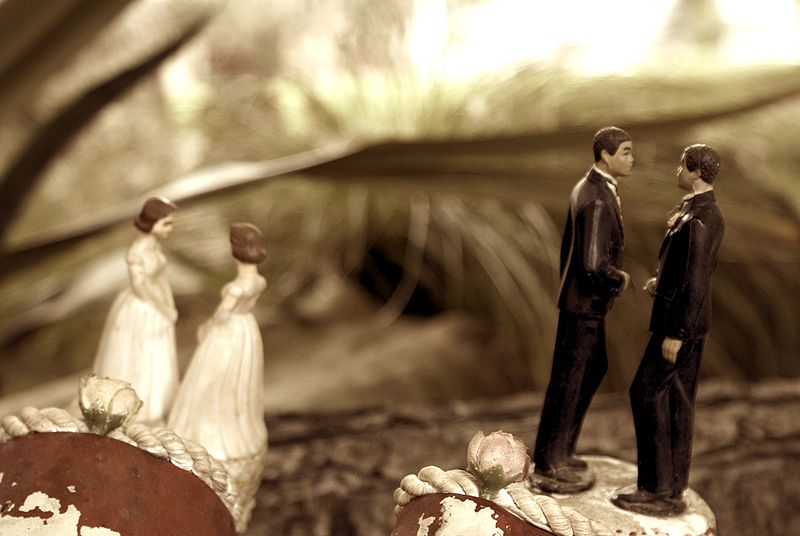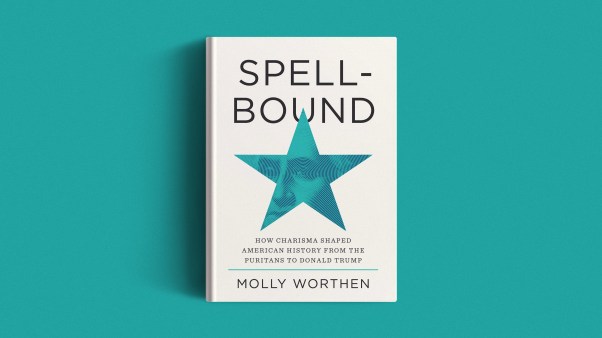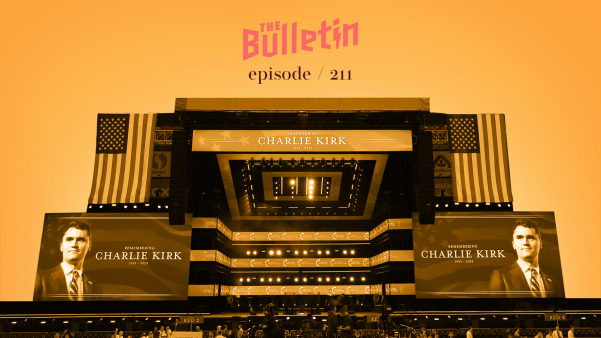The Alliance Defense Fund (ADF) recently released results from a poll suggesting that a majority of Americans believe in traditional marriage. The poll found 62 percent of Americans believe that “marriage should be defined only as a union between one man and one woman.”
The poll results seem to run counter to other recent polls showing a majority of Americans support same-sex marriage, but like all polling, the results depend on how the question is asked. What makes the ADF poll unique is that it is the first to ask a question that borrows the same language often used in ballot initiatives.

One explanation given for this difference has been to question the poll’s sponsorship. The ADF’s lawyers are the key defenders of Proposition 8, which effectively bars same-sex marriage in California. The poll was conducted by Polling Opinion Strategies, a research firm often works with Republican candidates.
The sponsorship may explain why the poll was conducted, but the methodology provided by ADF is in line with standard practice in polling.
In 31 states, voters have approved initiatives that define marriage as being between one man and one woman. While these ballots effectively prohibit same-sex marriage, they are worded in the affirmative (should the state define marriage as the union between one man and one woman?) not the negative (should the state ban same-sex marriage?).
The importance of question wording has been long recognized by pollsters. For example, the Pew Center for the People and the Press (Pew) asked “Do you think it should be legal or illegal for gay and lesbian couples to get married?”A majority (53 percent) said it should be “legal.”
But another Pew survey conducted just weeks earlier found less support for gay marriage when it asked, “Do you strongly favor, favor, oppose, or strongly oppose allowing gays and lesbians to marry legally?”
This seems to be asking the same idea, but it is not. This question is about “allowing” gays and lesbians to marry, not whether those marriages should be “illegal.” This change in the question wording dropped support for same-sex marriage from a majority to 45 percent (versus 46 percent who oppose same-sex marriage). An August 2010 AP-National Constitution Center Poll found nearly six-in-ten Americans think “couples of the same sex be entitled to the same government benefits as married couples of the opposite sex” and oppose having “the government distinguish between them.”
Such subtle differences are not lost on politicians. In 2008, then California Attorney General Jerry Brown changed the official description of Proposition 8. The original petition asked people to support a proposition that “amends the California Constitution to provide that only marriage between a man and a woman is valid or recognized in California.” Brown changed the wording. The wording on the ballot was titled: “Eliminates the Right of Same-Sex Couples to Marry.”
The ADF question does not ask about same-sex marriage. Instead, it asks what people believe marriage should be. The ADF asked each respondent whether he or she agreed with the statement: “I believe marriage should be defined only as a union between one man and one woman.”
A majority (62 percent) said they agree with this statement. One-third said they disagree. This result seems to contradict polls from Gallup, Pew, and other media outlets, which found growing support for same-sex marriage.
Unlike the ADF, these polls do not ask about how to define marriage but what they think about the legal status of same-sex marriage. In May, Gallup asked, “Do you think marriages between same-sex couples should or should not be recognized by the law as valid, with the same rights as traditional marriages?” A slim majority (53 percent) said they should be recognized; 45 percent said they should not.
An April poll by CNN and Opinion Research Corporation found a similar breakdown (51 to 47 percent). Ask the public about same-sex marriage, and a majority oppose denying gays and lesbians the same legal status as heterosexuals. Ask the public whether they think marriage should be defined as the union of one man and one woman, and the public will answer that they believe in traditional marriage.
This seemingly contradictory result fits with polls that ask people if they support same-sex marriage, civil unions, or neither. Pollsgenerallyfind about a third of the public supporting each of the three options. For example, Fox News polled registered voters in August. It found that 37 percent favored same-sex marriage; 29 percent preferred civil unions but not marriage; and 28 percent did not want any legal recognition of same-sex couples. A Daily Kos poll found that the public is almost equally split between the three options.
On the one hand, this means that two-thirds of Americans favor gay marriage or civil unions. On the other hand, it means that two-thirds want to keep “marriage” as something that includes only one man and one woman, which is similar to what the ADF poll finds.
If forced to choose between allowing same-sex marriage or not, a slim majority chooses to allow it. If the choice includes civil unions, support for same-sex marriage drops to around one-third, as does support for traditional marriage. Ask if marriage should be defined as the union of one man and one woman, a majority of the public will say it should. It may seem contradictory, but that is the nature of public opinion.
Note: For a quick summary of recent polls mentioned in this post, see the PollingReport.com page on same-sex marriage and gay rights.








